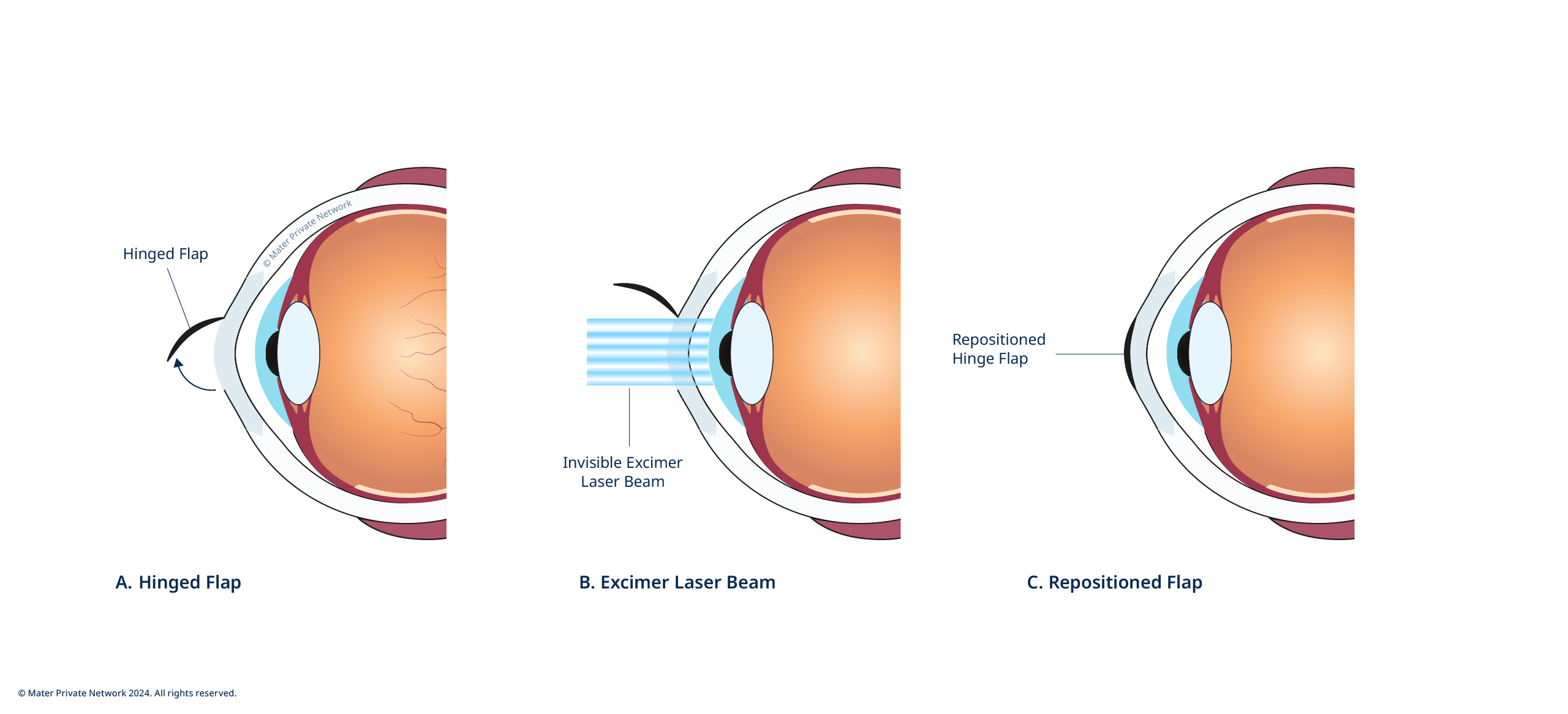Laser In-situ Keratomileusis (LASIK)
Contact Us
Mr. Marc Guerin T: 01 685 6468 E: eyeguerin@materprivate.ie | Ms. Caitriona Kirwan T: 045 230 426 E: caitriona.kirwan@materprivate.ie
Useful Information
About this service
If you do not have 20/20 vision, you have what is called a refractive error. Laser refractive eye surgery is used to improve the refractive state of the eye and to decrease dependency on glasses or contact lenses. The most common surgical methods reshape the curvature of the cornea using excimer lasers.
Laser in-situ keratomileusis (LASIK) is a surface laser refractive procedure and is a popular surgery for correcting short sightedness, long sightedness and astigmatism.
Standards of excellence
The Mater Private Eye Laser Clinic was established in 1992, and was the first of its kind in Ireland dedicated to refractive surgery.

If you are considering laser vision correction, the best way to learn more is to come and meet one of our expert consultants for an assessment. This is a very comprehensive eye examination and along with determining your suitability for refractive surgery, it will allow us see if you are experiencing any other eye issues.
Based on the results of this assessment and taking into consideration your specific needs, your consultant ophthalmologist will discuss which treatment options are best for you.
Like other types of refractive surgery, the LASIK procedure reshapes the cornea to enable light entering the eye to be properly focused onto the retina for clearer vision.
During LASIK surgery a thin, circular "flap" is created on the surface of the eye. The flap gives your surgeon access to the underlying cornea and reshapes the surface as required with the laser, so it more accurately focuses light on the retina for improved vision.
The ‘flap’ is then re-positioned and the cornea allowed to heal naturally.
As LASIK results in less surface disturbance, there is less discomfort than with PRK or LASEK, as well as a more rapid recovery.
Side effects may occur and may include:
- Discomfort in the first 24 to 48 hours after surgery
- Glare
- Seeing halos around images
- Difficulty driving at night
- Fluctuating vision
- Dry eyes










